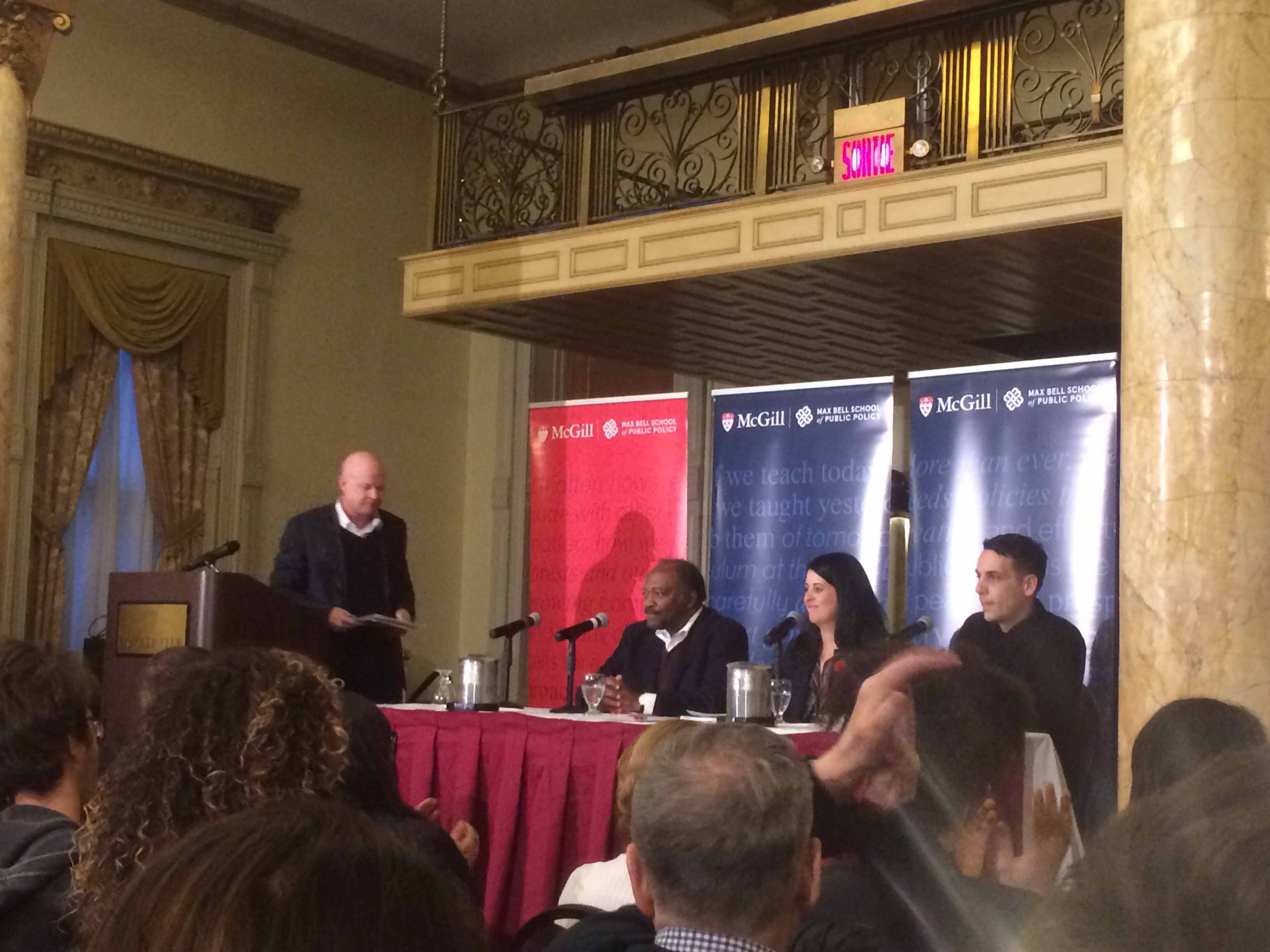On Oct. 30, McGill’s Max Bell School of Public Policy and Media@McGill hosted a panel titled Responsible Journalism in the Age of Hyper-Polarization on partisan division in the media. The talk, moderated by Andrew Potter, assistant professor at the McGill Institute for the Study of Canada, brought together Policy Options Editor-in-Chief Jennifer Ditchburn, Mark Lloyd, professor at the University of Southern California-Annenberg School of Communication, and VICE Quebec Editor-in-Chief Phil Gohier.
The panelists first discussed how journalists should responsibly report on groups with extreme political stances, explaining that, historically, journalists have avoided covering groups until they are firmly in the public eye. They agreed that social media has made it harder for media outlets to ignore radical groups gaining traction online, complicating the question of whether journalists do more harm than good by providing far-right groups with a platform.
“I think it’s a very fine line,” Ditchburn said. “It’s tricky when journalists sort of appoint themselves as the arbiters of who’s worth covering and who’s not. Each case gets decided in each newsroom in a different way [.…] I don’t think we can have in any story or any issue a kind of rule that applies because it’s just always moving.”
The panelists also reflected on whether modern journalists are engaging in ‘both-side-ism journalism,’ an excessive commitment to balanced coverage of all sides of a story at the expense of truth. Using the left-leaning coverage of the most recent American presidential election as a recent example, Ditchburn pointed out that equality and fairness are what give people confidence in journalism.
Lloyd, who has worked as a journalist for CNN and served as associate general counsel at the U.S. Federal Communications Commission, believes that objectivity in journalism is a valuable and useful modern goal but that readers should never assume that the content they are consuming is impartial.
“The check is other media, and the people that consume the journalism,” Lloyd said.
Ditchburn expressed her frustration with attempts to cover catchy yet shallow news stories, citing what she sees as excessive media coverage of President Trump’s Twitter account as an example.
“Journalism outlets have a choice,” Ditchburn said. “We don’t have to go to [every] photo-op [….] We can do something else, and we can spend our time and our money, which is in short supply, covering something deep and profound.”
The panel discussed New York University professor Jay Rosen’s idea that journalists should recognize their biases outright. Ditchburn and Lloyd argued that Rosen’s proposition was naive, as most journalists are not aware of the structural biases at play in their reporting.
“[I don’t think] Canadians journalists have done a big reflection on colonialism in journalism, [or on] overarching views about the economy, what we accept as a truism,” Ditchburn said. “When Jay [Rosen] talks about declaring your biases, I think politicians think of the biases being about liberal, conservative, or, in the States, Republican or Democratic, but the biases run way deeper than that.”
To conclude, Potter asked speakers to comment on the place of trust in journalism, and whether it should be integral to the practice.
“Journalists should aspire to be trusted,” Lloyd said. “You can earn your audience’s trust if you do good work consistently [….] Should the audience just automatically, blindly, trust journalists? Absolutely not.”
Gohier dissented in part, arguing that relevance is a more fundamental metric.
“I look at trust as a double-edged sword,” Gohier said. “Trust is conflated with likeability [….] I think relevance is a better thing to aim for.”
The Max Bell School of Public Policy will host another event on Nov. 20, which will centre on the major public policy issues surrounding monetary policy frameworks.









